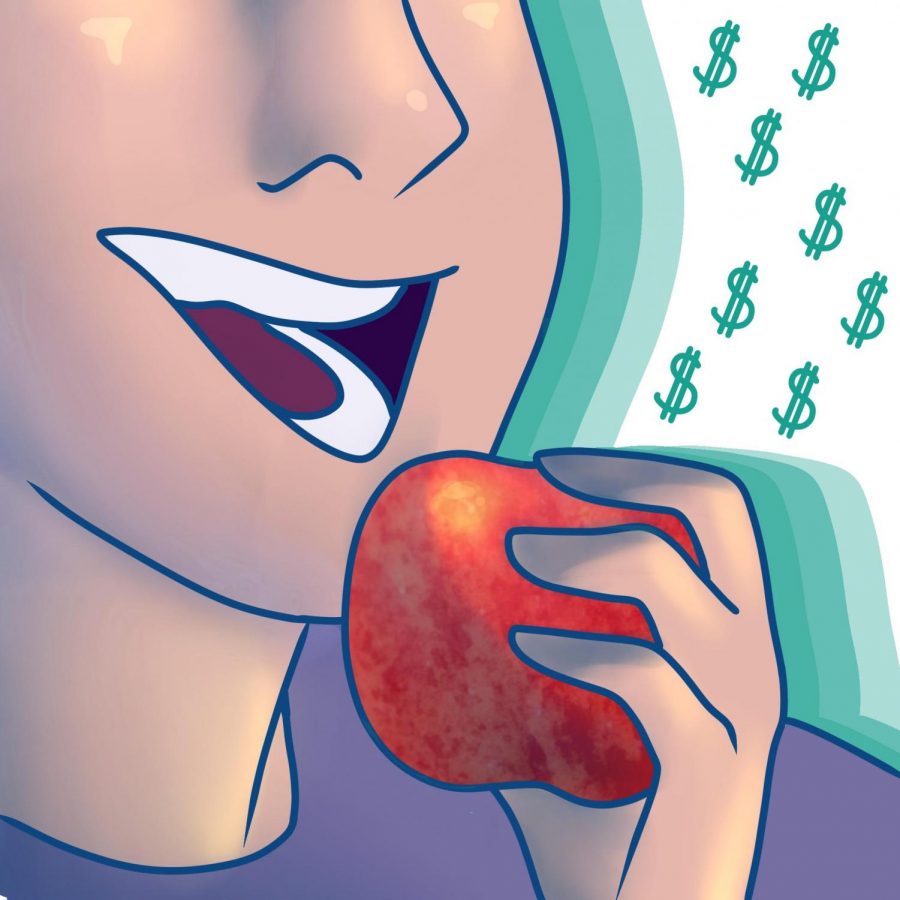Opinion: School lunch should be free
A full belly is an important part of being able to learn—one students shouldn’t be denied
If education is a universal human right, and if limited access to food makes learning difficult, then schools should feed their students free of charge to make sure that all students can learn at the best of their abilities.
November 12, 2019
When parents send their children to school, they expect the school to provide them with the basics — a desk, a classroom, a well-qualified teacher, a safe learning environment. The most basic element that should be provided, however, is a nutritious meal to get them through the day.
What’s a better investment of taxpayer dollars than feeding hungry children? The Shriver Center on Poverty Law in Chicago says, “all of the federal, state, and local dollars spent in the United States on education are wasted if classrooms have hungry children.”
Children who are hungry do not learn as well as students who are fed. They have trouble concentrating, have a hard time behaving in class, are more likely to fall asleep during class, and are more likely to be tardy or even absent.
MCHS currently offers a reduced or even free lunch program to students. This policy is discriminatory against students who are barely over the income limit on the fee waiver. The policy, which began in the 70s, is funded by the USDA. It provides both breakfast and lunch for kids who qualify for that fee waiver. The school can not legally deny a student a meal — students are entitled to a full lunch, which includes the five components (grains, protein, dairy, fruits, and vegetables).
A student does not need money to get lunch every day, but the price of the meal they get is added on to the student’s school fees and they may even go negative and they have to pay it back later. For students who don’t qualify for the program but still can’t afford food, this number increases every day, causing the student and their families to be stressed about how they’re going to pay it off. This stress causes the student to feel as if they should stop getting lunch so they don’t have to pay any more than they already owe.
Allowing all students to get lunch for free has its setbacks, though. According to Joann May, Director of Food Services, “Someone has to pay for that food, and that would be the school district,” May explains, “There are schools in the country and in the state and probably even in the area that feeds everyone for free, but they have to have a really high percentage of free and reduced kids that qualify for that program.” Although it may be expensive, it is worth it to help support students in their education.![]() Loading ...
Loading ...
In 2018, MCHS had many students who qualified — in fact, according the school’s State Report Card, nearly a third of the student body was considered low-income. 41 students were considered homeless and didn’t have a set place to go after school ended. “Children from families with incomes at or below 130 percent of the federal poverty level receive free school meals,” says the Shriver Center. With such a high level of low-income students, MCHS should ditch the waiver slips.
A popular argument against providing universal free lunch is grocery stores and restaurants are not going to give away food for free because someone can’t afford it, and that students who can afford it should pay for it. Although this is true, school is a place where children shouldn’t worry about having enough money to pay to the school for food. Many students have more important things to worry about than to worry about capitalist propaganda to pay to be fed at an institution they have to attend by government rules.
To prevent students from taking advantage of a universal free lunch program, they should still have to put their student ID number into the system so the school can keep track of who already received a lunch, then if they wanted extra things or another one, they would have to pay. That first essential lunch, however, is better off free.
No child should have to go through their day hungry. There is no child who is more worthy of having a meal than any other child simply because of their household income.













Lolly Peters • Nov 12, 2019 at 12:56 pm
Great article, and as a retired educator, I totally agree!